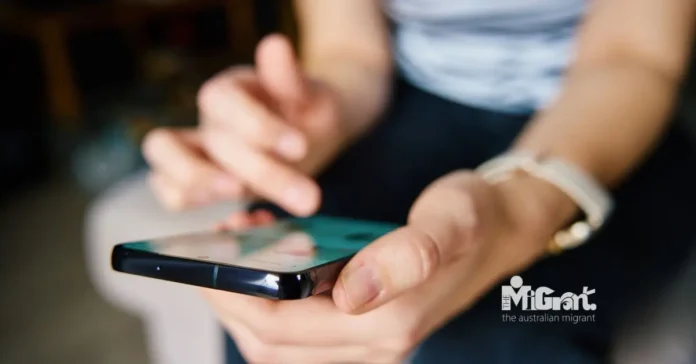Your online accounts are gateways to your digital life, and for migrants, tourists, visitors, travellers, and students, maintaining a secure online presence is more important than ever. Whether you’re managing finances from abroad, staying connected with loved ones, booking travel, or accessing essential services like healthcare and government portals, your online security is vital.
In a world where cyber threats are constantly evolving, weak passwords can leave your personal and financial information vulnerable. This guide will show you how to create strong passwords, use modern tools like password managers, and adopt practices that protect your digital identity wherever you are in the world. Whether you’re navigating life in a new country or preparing for your next adventure, these tips will help you stay safe online and avoid the hassle of compromised accounts.
Why Strong Passwords Are Essential in 2025
In a world where cyberattacks are more sophisticated than ever, weak passwords are no match for determined hackers. Research shows that common passwords like “123456” can be cracked in seconds, leaving your accounts and sensitive information exposed. Strong passwords act as your first line of defense, making it harder for unauthorized users to gain access.
How to Create Strong Passwords That Work
When creating a secure password, aim for a combination that is both complex and easy for you to remember. Here’s how to do it:
- Length: Use at least 12-16 characters.
- Variety: Include uppercase and lowercase letters, numbers, and special symbols.
- Unpredictability: Avoid using personal information, such as birthdays or names.
- Passphrases: Combine unrelated words to form a memorable but strong passphrase (e.g., “Sunflower$23Pizza”).
Answering Common Questions About Password Security
How Can I Manage Multiple Strong Passwords?
Managing unique passwords for every account can feel overwhelming. Password manager tools like LastPass, Dashlane, or 1Password make this task easier by generating and storing strong passwords securely. These tools also allow you to organize your login credentials and access them with a single master password.
What Is Multi-Factor Authentication (MFA), and Why Should I Use It?
Multi-factor authentication (MFA) adds an extra layer of protection by requiring a second verification step, such as a one-time code sent to your phone or biometric data like fingerprints. Even if someone manages to crack your password, MFA ensures they can’t access your account without the additional authentication step.
How Often Should I Change My Passwords?
While changing passwords frequently was once standard advice, modern security practices focus more on creating strong, unique passwords and using tools like MFA. Change your password immediately if you suspect it has been compromised or if you receive a breach notification from a website or service.
What Should I Do If I Forget My Password?
Most online services offer password recovery options, such as resetting your password via email or text message. To avoid the hassle of forgetting passwords, consider using a password manager that securely stores and auto fills your credentials when needed.
Are There Signs My Password Might Be Compromised?
Yes, here are a few warning signs:
- Unusual activity on your accounts, such as unrecognized logins or changes to account details.
- Receiving notifications for password reset requests you didn’t initiate.
- Finding your email or account listed on breach-checking websites like Have I Been Pwned.
If you notice any of these, change your password immediately and enable MFA for added security.
What Are the Risks of Using the Same Password Across Multiple Sites?
Using the same password across accounts creates a “domino effect.” If one account is breached, hackers can use that password to access other accounts, a technique known as credential stuffing. Always use unique passwords to minimize this risk.
Can I Use a Password Generator for Better Security?
Absolutely! Password generators create complex and random combinations that are nearly impossible to guess. Many password managers have built-in generators, or you can use free tools online. For example, a generator might create something like G#7k92!bT@r4, which is far more secure than something predictable like Summer2025.
Transitioning to a Passwordless Future with Passkeys
Traditional passwords are no longer the only option. Passkeys—biometric data like fingerprints or PINs stored locally on your device—are emerging as a secure and user-friendly alternative. Big tech companies, including Apple and Google, are integrating passkey technology into their ecosystems, providing enhanced protection against phishing and brute-force attacks.
Practical Steps to Enhance Password Security
- Update weak or reused passwords today.
- Enable MFA on your most critical accounts, such as email, banking, and social media.
- Use a password manager to store and manage your credentials securely.
- Regularly check if your email has been part of a data breach through services like Have I Been Pwned.
Protect Your Digital Identity with Simple Steps
Strong passwords are the cornerstone of online security, but they’re only part of the equation. By using tools like password managers, enabling MFA, and staying informed about new technologies like passkeys, you can fortify your digital life. Don’t wait for a security breach—take action today to protect your online presence.
Looking for more practical tips? Explore our website for guides on staying safe and secure online. Have questions? Reach out to us at themigrant.au@gmail.com.
Looking to apply for an Australian visa or explore migration opportunities? We can connect you with a trusted Registered Migration Agent who specializes in student, skilled worker, partner, family, and visitor visas. Whether you're planning to study, work, or settle in Australia, they’ll guide you through every step of the process. Send your inquiries to themigrant.au@gmail.com, and we’ll help you get in touch with the right experts for your visa and migration needs!





